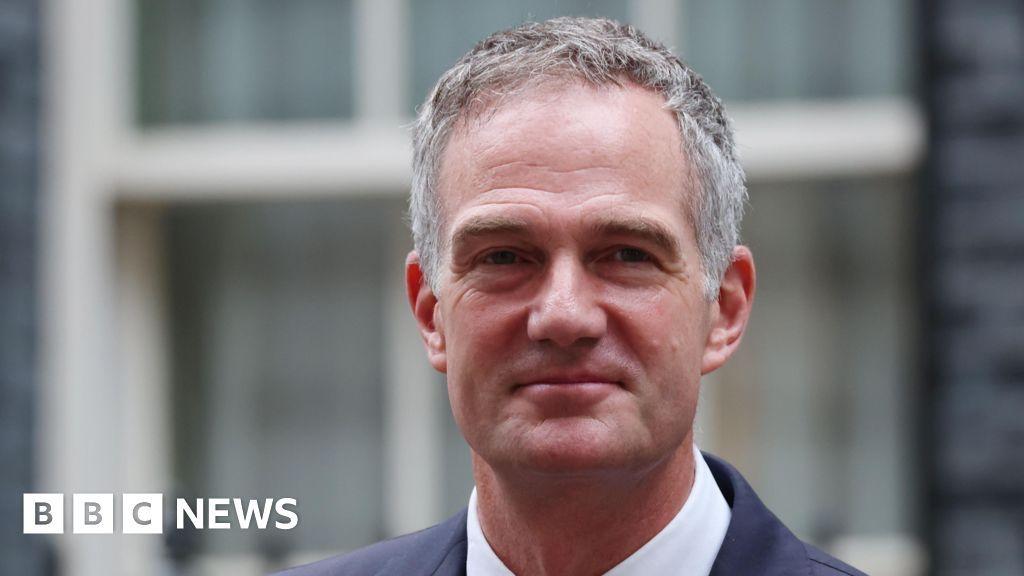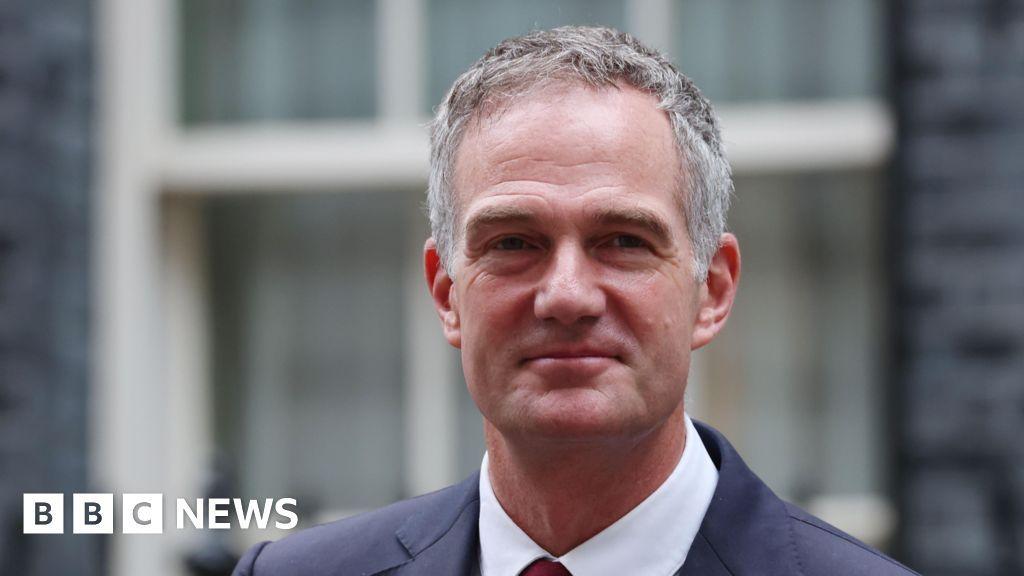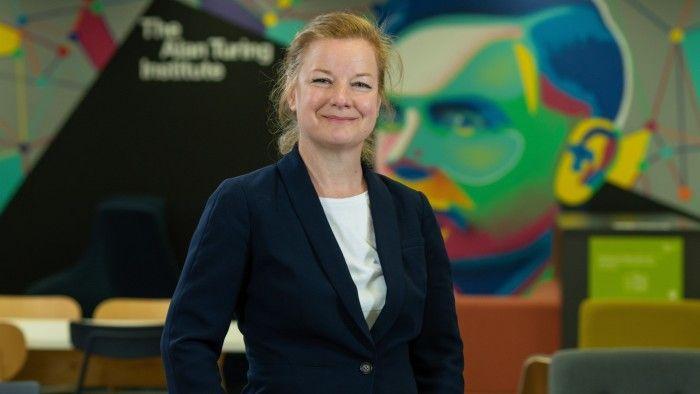UK Government Demands AI Institute Shift Focus to Defense and National Security
2 Sources
2 Sources
[1]
Minister tells UK's Turing AI institute to focus on defence
The cabinet minister said further government investment in the institute would depend on the "delivery of the vision" he had outlined in the letter. A spokesperson for the Alan Turing Institute said it welcomed "the recognition of our critical role and will continue to work closely with the government to support its priorities". "The Turing is focussing on high-impact missions that support the UK's sovereign AI capabilities, including in defence and national security," the spokesperson said. "We share the government's vision of AI transforming the UK for the better." The letter comes after Prime Minister Sir Keir Starmer committed to a Nato alliance target of increasing UK defence spending to 5% of national income by 2035 and invest more in military uses of AI technology. A recent government review of UK defence said "an immediate priority for force transformation should be a shift towards greater use of autonomy and artificial intelligence". Set up under Prime Minister David Cameron's government as the National Institute for Data Science in 2015, the institute added AI to its remit two years later. It receives public funding and was given a grant of £100m by the previous Conservative government last year. The Turing institute's work has focused on AI and data science research in three main areas - environmental sustainability, health and national security. Lately, the institute has focused more on responsible AI and ethics, and one of its recent reports was on the increasing use of the tech by romance scammers. But Kyle's letter suggests the government wants the Turing institute to make defence its main priority, which would be a significant pivot for the organisation. "There is an opportunity for the ATI to seize this moment," Kyle wrote in the letter to the institute's chairman, Dr Douglas Gurr. "I believe the institute should build on its existing strengths, and reform itself further to prioritise its defence, national security and sovereign capabilities."
[2]
Minister demands overhaul of UK's leading AI institute
Peter Kyle calls for greater focus on defence and national security, and new leadership at Alan Turing Institute The technology secretary has demanded an overhaul of the UK's leading artificial intelligence institute in a wide-ranging letter that calls for a switch in focus to defence and national security, as well as leadership changes. Peter Kyle said it was clear further action was needed to ensure the government-backed Alan Turing Institute met its full potential. In a letter to ATI's chair, seen by the Guardian, Kyle said the institute should be changed to prioritise defence, national security and "sovereign capabilities" - a reference to nation states being able to control their own AI technology. The call for new priorities implies a downgrading of ATI's focus on health and the environment, which are two of three core subjects for the institute, alongside defence and security, under its "Turing 2.0" strategy. "Moving forward, defence and national security projects should form a core of ATI's activities, and relationships with the UK's security, defence, and intelligence communities should be strengthened accordingly," Kyle wrote. Making clear that the Turing 2.0 strategy did not meet government requirements, Kyle indicated that he expected leadership changes at ATI. "To realise this vision, it is imperative that the ATI's leadership reflects the institute's reformed focus," he wrote. "While we acknowledge the success of the current leadership in delivering reform at the institute during a difficult period, careful consideration should be given to the importance of an executive team who possesses a relevant background and sector knowledge to lead this transition." ATI is chaired by Doug Gurr, the former head of Amazon's UK operations and interim chair of the UK's competition watchdog. The institute is going through a restructuring under the chief executive, Jean Innes,which one in five staff have said puts ATI's credibility in "serious jeopardy". At the end of last year, ATI employed 440 staff, but it has since launched a redundancy process. Although the institute is nominally independent, it recently secured £100m from the government in a five-year funding deal. The letter said ATI's "longer-term funding arrangement" could be reviewed next year. The government would maintain its current level of research and development from national security and defence for the next three years, Kyle wrote, and would increase the number of defence and national security staff embedded in the institute. Dame Wendy Hall, a professor of computer science at the University of Southampton and the co-chair of a 2017 government AI review, said ATI would cease to be a national institute under the government's proposed changes. "If the institute focuses on defence and security it ceases to be a national institute on AI," Hall said. "It's not broad enough. If the government wants an AI institute that does defence and security then it should just call it that." In February, the government indicated a focus on national security with its AI strategy by renaming its AI Safety Institute, established under the premiership of Rishi Sunak, the AI Security Institute. Kyle's letter also referred to the government's 50-point AI action plan as a "testament" to the UK's AI ambitions, The plan's targets include a 20-fold increase in the amount of AI computing power under public control by 2030, and embedding AI in the public sector.
Share
Share
Copy Link
The UK's Technology Secretary has called for a major overhaul of the Alan Turing Institute, urging a shift in focus towards defense and national security, potentially reshaping the country's AI research priorities.
Government Demands Shift in AI Institute's Focus
The UK government has called for a significant overhaul of the Alan Turing Institute (ATI), the country's leading artificial intelligence research center. Technology Secretary Peter Kyle has demanded that the institute prioritize defense and national security in its research agenda, potentially reshaping the landscape of AI development in the UK
1
2
.New Priorities and Leadership Changes
In a letter to ATI's chairman, Dr. Douglas Gurr, Kyle outlined a vision that would see the institute "reform itself further to prioritize its defence, national security and sovereign capabilities"
1
. This shift implies a potential downgrading of ATI's current focus on health and environmental sustainability, two of its three core subjects under the "Turing 2.0" strategy2
.Kyle emphasized the need for leadership changes to reflect this new direction:
"To realise this vision, it is imperative that the ATI's leadership reflects the institute's reformed focus," he wrote, suggesting that the executive team should possess "relevant background and sector knowledge to lead this transition"
2
.Funding and Government Influence
The government's influence over ATI's direction is significant, given that the institute recently secured £100 million in a five-year funding deal
2
. Kyle's letter indicated that the "longer-term funding arrangement" could be reviewed next year, tying financial support to the institute's alignment with government priorities1
2
.Concerns and Criticisms
The proposed changes have raised concerns among some experts. Dame Wendy Hall, a professor of computer science and co-chair of a 2017 government AI review, warned that such a narrow focus would compromise ATI's status as a national institute:
"If the institute focuses on defence and security it ceases to be a national institute on AI," Hall stated. "It's not broad enough. If the government wants an AI institute that does defence and security then it should just call it that"
2
.Related Stories
Broader Context of UK's AI Strategy
This move aligns with the UK government's recent emphasis on AI in national security. In February, the government renamed its AI Safety Institute to the AI Security Institute, signaling a shift in priorities
2
. The changes at ATI are part of a broader 50-point AI action plan, which includes ambitious targets such as a 20-fold increase in public-controlled AI computing power by 20302
.ATI's Response and Current Status
A spokesperson for the Alan Turing Institute acknowledged the government's vision, stating:
"The Turing is focussing on high-impact missions that support the UK's sovereign AI capabilities, including in defence and national security. We share the government's vision of AI transforming the UK for the better"
1
.However, the institute is currently undergoing a restructuring process under CEO Jean Innes, which has reportedly led to concerns among staff, with one in five employees suggesting that the changes put ATI's credibility in "serious jeopardy"
2
.
Source: BBC
As the UK government pushes for this significant shift in AI research priorities, the future direction of the Alan Turing Institute and its impact on the country's AI landscape remains to be seen.
References
Summarized by
Navi
[2]
Related Stories
UK's Alan Turing Institute Faces Crisis Amid Government Pressure and Staff Concerns
11 Aug 2025•Policy and Regulation

Alan Turing Institute CEO Resigns Amid Turmoil and Strategic Shift
05 Sept 2025•Policy and Regulation

UK Rebrands AI Safety Institute to AI Security Institute, Shifts Focus to Cybersecurity and Partnerships
14 Feb 2025•Policy and Regulation

Recent Highlights
1
SpaceX acquires xAI as Elon Musk bets big on 1 million satellite constellation for orbital AI
Technology

2
French Police Raid X Office as Grok Investigation Expands to Include Holocaust Denial Claims
Policy and Regulation

3
UNICEF Demands Global Crackdown on AI-Generated Child Abuse as 1.2 Million Kids Victimized
Policy and Regulation





